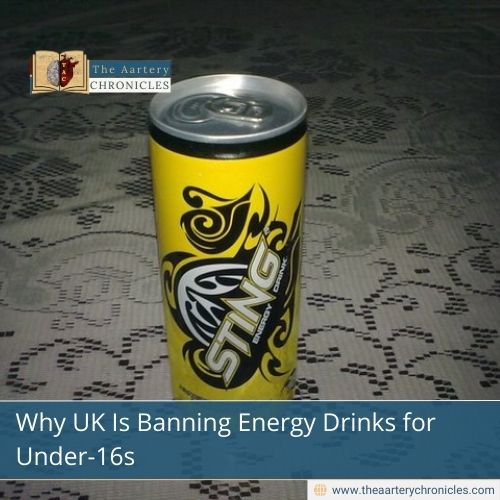

Why UK Is Banning Energy Drinks for Under-16s
The UK government has announced plans to ban energy drinks for under-16s in England, citing growing concerns about their impact on children’s weight, mental health, and learning ability. Under the proposal, retailers, including shops, cafes, restaurants, vending machines, and even online sellers, will no longer be able to sell high-caffeine energy drinks to anyone below the age of 16.
This policy is part of a wider national effort known as the Plan for Change, aimed at tackling childhood obesity and helping young people build healthier lifestyle habits.
Why Energy Drinks Are a Problem
Energy drinks are often marketed as products that improve alertness and performance, but health experts warn they can pack dangerously high levels of caffeine, sometimes equal to five cups of coffee in a single can.
On top of that, these drinks often contain sugar, guarana, taurine, and other stimulants, which can trigger a range of problems in children, such as:
- Difficulty sleeping
- Poor focus and concentration in school
- Higher risk of anxiety or mood issues
- Tooth decay and weight gain due to sugar
- Long-term risks for heart health and metabolism
Around 100,000 children in England consume at least one high-caffeine energy drink daily, and nearly a third of teenagers report drinking them every week.
Government Response
Health Secretary Wes Streeting explained that these drinks are undermining children’s well-being. “We cannot expect students to thrive academically if they are regularly consuming the equivalent of multiple cans of cola before class,” he said.
Education Secretary Bridget Phillipson added that the ban is designed to give children the strongest possible start in life. The restriction will specifically apply to products containing more than 150mg of caffeine per litre, while ordinary soft drinks, tea, and coffee will remain unaffected.
Conclusion
By restricting access to energy drinks, the government aims to reduce obesity in up to 40,000 children and improve outcomes in education, mental well-being, and long-term health. Experts agree this is a vital early intervention to support what ministers call “the healthiest generation of children ever.”
Source: Inputs from various media Sources
I’m a pharmacist with a strong background in health sciences. I hold a BSc from Delhi University and a pharmacy degree from PDM University. I write articles and daily health news while interviewing doctors to bring you the latest insights. In my free time, you’ll find me at the gym or lost in a sci-fi novel.
- Priya Bairagi
- Health News and Updates,People Forum
- 5 September 2025
- 09:00








